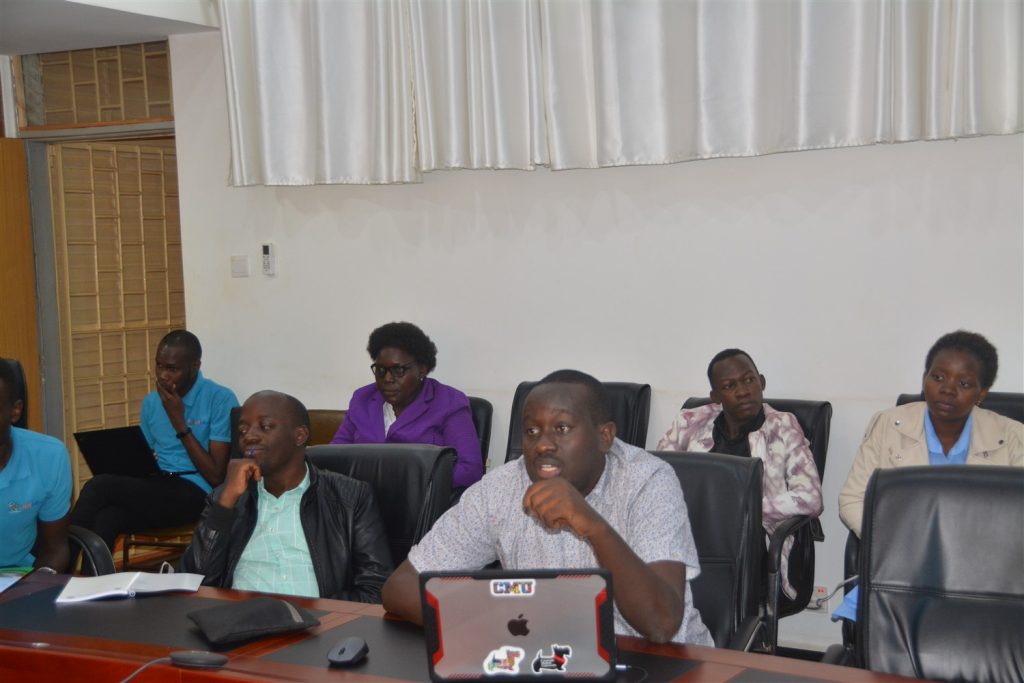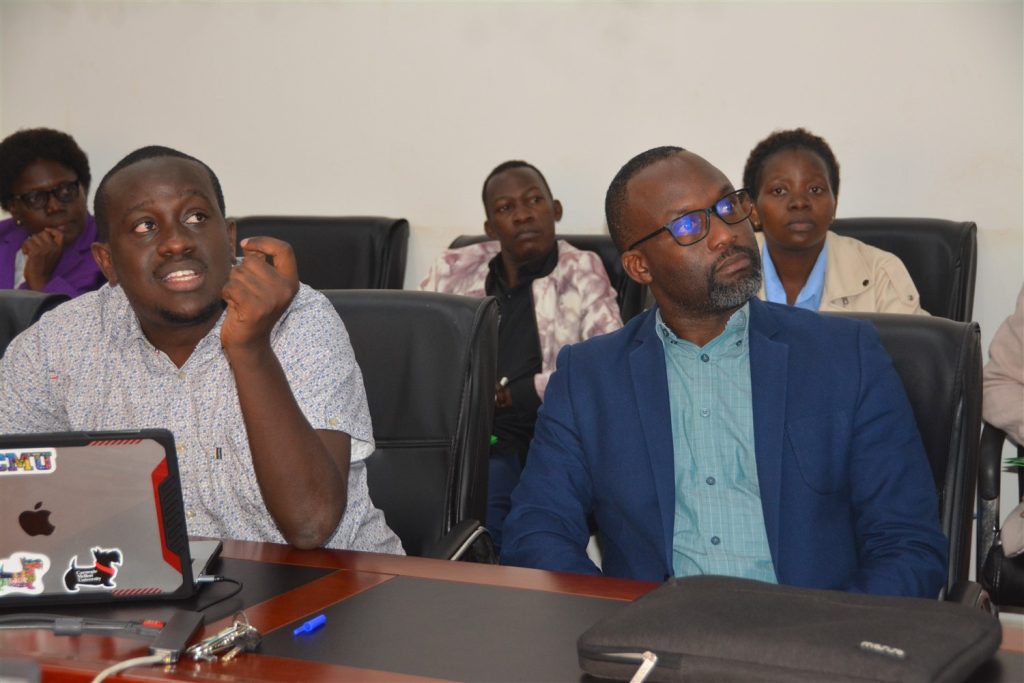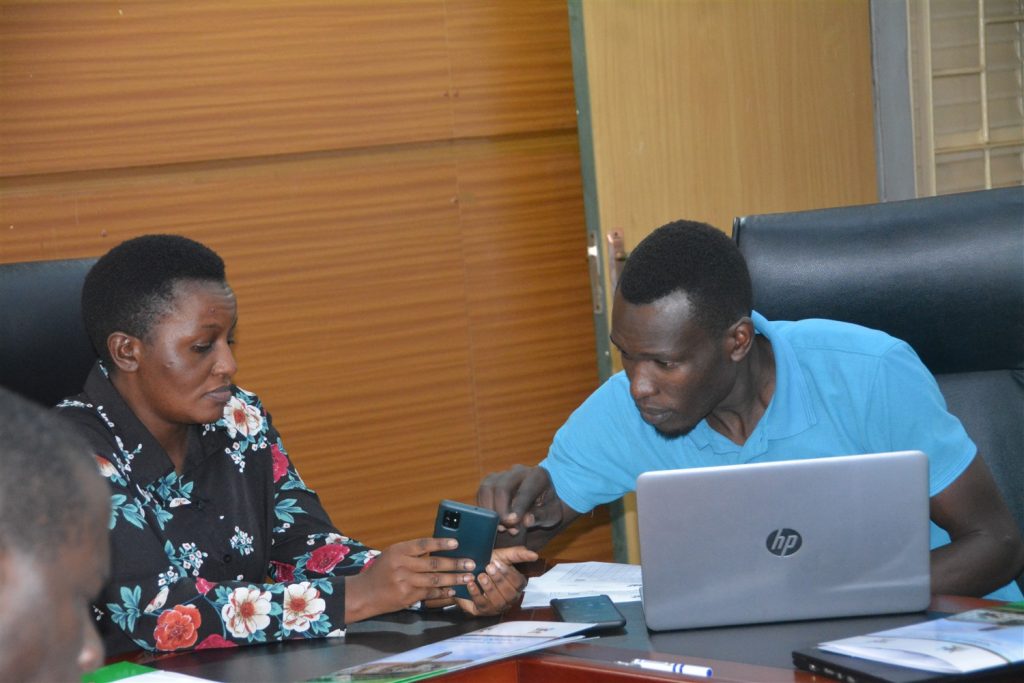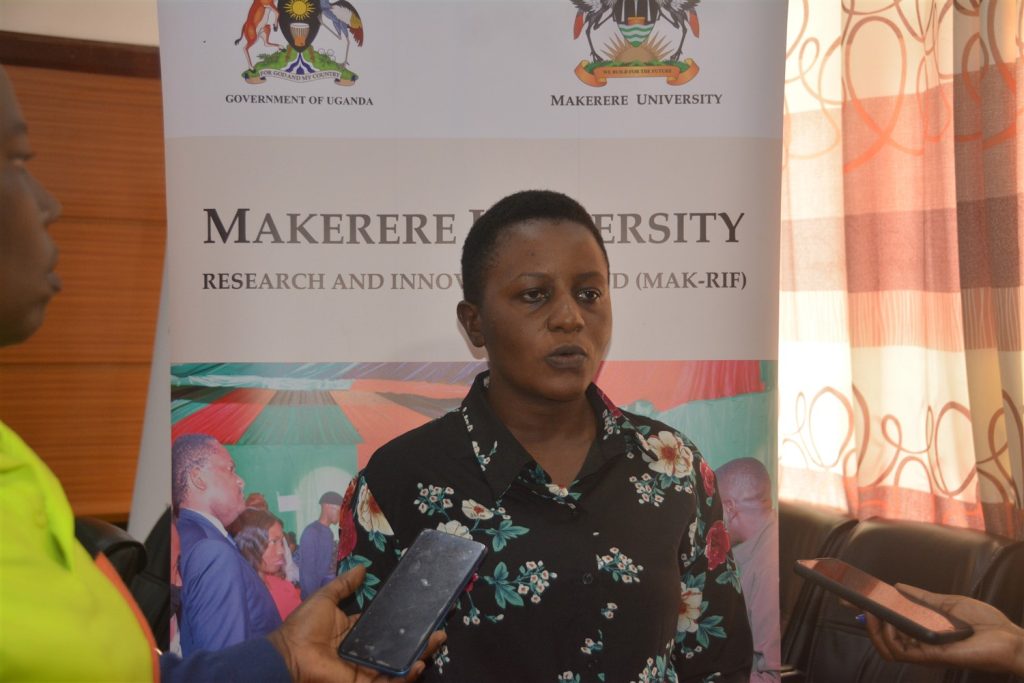The School of Engineering at the College of Engineering, Design, Art and Technology (CEDAT) shared findings of research that was conducted in Apac Districts through two projects namely Piloting a Rural Broadband Connectivity Model (RCBM) and Efficacious patient management system (EPMS).
The findings of the research sponsored by the Government of Uganda through the Makerere University research and Innovation Fund(MakRIF) were disseminated during a dissemination seminar held in the College on Friday 24th November 2023, where it was revealed that Apac the host District greatly benefited from the services that not only led to the increased uptake of internet services but also gained through other socio economic areas.
The projects undertaken by research teams in the Electrical Department included Piloting a Rural Broadband Connectivity Model (RCDM) whose main objective was to pilot a model for rural broadband connectivity in support of a knowledge based economy focusing on the education and agricultural sectors, with Apac as the host District.

It specifically targeted applications addressing service delivery, agricultural groups, women and youth groups and the potential deployment areas were based on the presence of an active partner in the community already addressing a given socio economic issue.
The second project, Efficacious Patient Management System (EPMS) aimed at developing a machine learning aided application (MakCOV) for noninvasive screening for COVID 19. It was specifically aimed at developing a machine learning Model for COVID 19 screening utilizing patient’s retrospective data and to integrate the machine learning models with the hardware platform.
In his remarks at the dissemination seminar, the Head of Department, Electrical and Computer Engineering, College of Engineering, Design, Art and Technology Dr. Abubaker Matovu Waswa said piloting a Rural Broadband Connectivity Model (RCBM) was aimed at ensuring that the rural areas specifically Apac District gets internet connectivity that is not only reliable but also with appropriate data speed.

He said the one-year rural broadband connectivity project was made possible because of the support by the Government of Uganda through the Research and Innovations Fund at Makerere University. According to Dr. Abubaker Matovu Wasswa, the project that cost approximately 240 Million Uganda Shillings enabled the deployment of a network in Apac, thereby enabling the population gain more internet access. He commended the research teams for the great work done and whose impact has been realized by the target communities.
Dr. Edwin Mugume, the Co P.I while explaining the achievements of the project noted that it realized the expansion and deployment of the RCBN, covering twelve sites including primary and secondary schools, a technical institute, a hospital, the District Headquarters, a women’s group office, and a farmer’s group, which he described as an interconnectivity of a range of services in Agriculture, Health and other socio economic activities.
He pointed out that there was increased internet engagement and demand from the targeted rural communities and in the same vein a demand for enhanced multi-disciplinary capacity for research and teaching in rural connectivity solutions.
‘This project is unique in a way that it is not only providing a network but is moving a step further to analyse the issues or the gaps impacting the communities in the catchment area of Apac’. He said it not only provided internet connectivity but will also help address the gaps that were seen in the overview and in this way influence the way of life of the people in Apac.

Dr. Mugume expressed optimism that with the coming onboard of other partners, the project would be extended across the entire country cognizant of the fact that the Government of Uganda was working out modalities of addressing the reduction of costs of internet connectivity in order to ensure that a wider area is covered by subsidizing the costs of the devices.
‘The current structure of the network was to provide access, and this was realized with the network up and running and its open to all users in the community’, he said while congratulating his team for the great work.
In regard to MakCOV developed under the Efficacious patient management system (EPMS) project, Dr. Andrew Katumba explained that the idea was conceived and the project initiated during the Covid 19 era. He said that although the motivation behind this was Covid 19 at that time, the machine can be used to test other ailments like influenza, TB and also by corporate companies that want to monitor the health of their employees.
‘In the design, the technology is adaptable to the different health conditions that can be screened. You can add a few sensors if you want to test other diseases other than covid. It was built in a modular manner that can have different modules for the different diseases’, he said while responding to queries raised about the relevance of the machine now that the COVID 19 era is more or less over.
He explained that the device uses machine learning and Internet of things and does the screening using the system and other bio data information to make a prediction..
Ms. Berna Namulyowa a graduate Research Assistant who was on both projects explained the process of project implementation ranging from the piloting study and surveys in Kampala and Apac where one on one surveys were done to get people’s perception about internet. She expressed her appreciation to the Government of Uganda which through MakRIF enabled the teams connect all the partners in Apac to internet which they use for education, agriculture and for their economic benefit.

She said for the MakCOV project, the surveys were done at CEDAT where over 300 students were screened using the prototype with a great number of participants appreciative of the idea of testing without getting pierced since the prototype uses temperature screening and oxygen.
Dr. Mercy Amiyo from Makerere University Research and Innovations Fund, while giving closing remarks commended the researchers for the work done. She said MakRIF was glad for having selected such projects that have impacts to lives in the beneficiary communities. She said as a funding agency they encourage the researchers to patent and secure their work right from the initial stages.
The research teams comprised of the following;
EPMS team
– Assoc. Prof. Eng. Dorothy Okello – Principal Investigator (PI)
– Dr. Cosmas Mwirikize – Co-PI
– Dr. Andrew Katumba
– Wayne Steven Okello
– Moses Bomera
– David Kateeba
– Hassan Mubiru
– Berna Namulyowa
– Claire Najjuko
– Derrick Ndyamukaki
– Sam Maleka
– Elisha Damba.
– Doreen Bujingo
RCBN Team
– Assoc. Pro. Dorothy Okello – Principal Investigator (PI)
– Dr. Edwin Mugume – Co-PI
– Alexander Muhangi – Field Coordinator
– Simon Masombo
– Berna Namulyowa
– Wayne Okello
– Ronald Mutebi
Authored By Harriet Musinguzi, Principal Communication Officer, CEDAT
Posted by Isemaghendera Alex, Web Administrator, CEDAT

